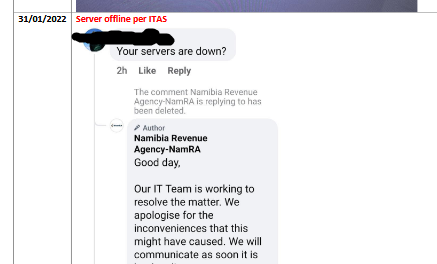
Ithindi charts way forward for envisaged revenue agency
“The main objective of establishing a semi-autonomous [revenue] agency is to inject operational efficiency in the administration of tax and customs services,” said Mr Penda Ithindi, Deputy Director in the Ministry of Finance. “This is envisaged to be achieved through improving and attracting specialized skills as well as harnessing technological innovation to provide robust taxpayer services,” he highlighted.
Ithindi addressed members of the Economic Association of Namibia at a dinner on Wednesday evening in Windhoek, giving a presentation on the soon to be established revenue agency. He also elaborated on what the task team’s would be doing in the interim.
Said Ithindi, “For the next 12 months, the task team will develop the policy framework and draft the enabling legislation. The policy framework will set out national objectives to be achieved through the establishment of the revenue agency and [define] specific policy choices to achieve those objectives in the context of special circumstances for Namibia. This is especially in regard to the institutional characteristics of the new agency, its governance framework, degree of autonomy, accountability and scope of its mandate. The policy framework will inform the enabling legislation.”
“The need for national consultation and learning from regional and international best practices can not be overemphasized. Wide stakeholder consultation will be undertaken at various stages,” he said.
“In the interim the Ministry will continue to implement on-going tax and customs administration reforms, including business re-engineering and a change-management drive. To the extent possible, the implementation of the reform agenda will be streamlined to the objectives of the envisaged new institutional arrangement,” Ithindi said.
“A situation analysis of the status quo and current constraints facing tax and customs services has been carried out, based on previous work done in this area as well as regional and international best practices. This forms the basis for activities for the task team going forward,” concluded Ithindi. The task team has 36 months in which it has to come up with a model relevant to the Namibian context. The team has three broad mandates and will set forth a policy framework that will define the nature of the revenue agency as well as policies that will drive core functions. Draft legislation will also be drawn up on the basis of the framework and international best practices will be adopted. The task team will also have the responsibility of steering the transitional process and will undertake stakeholder participation whilst looking at various models to encapsulate the agency’s operation.









































